Find Help
More Items From Ergsy search
-
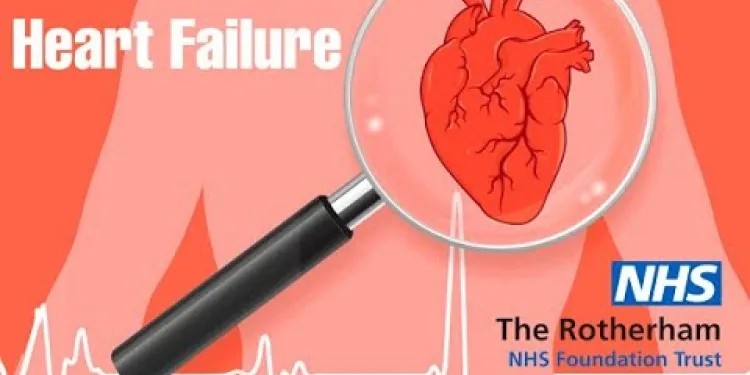
Heart Failure : Symptoms of heart failure
Relevance: 100%
-
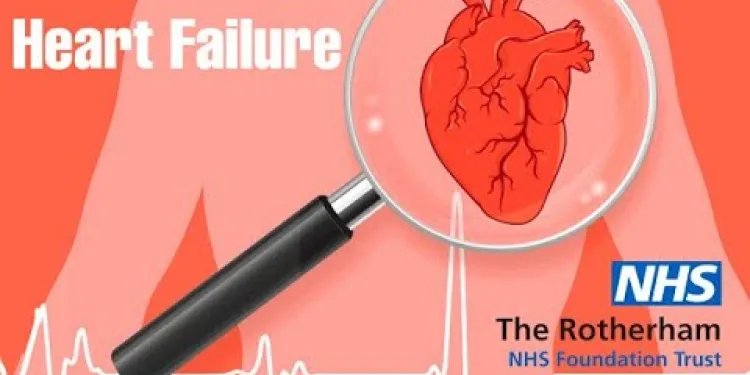
Heart Failure : What is heart failure?
Relevance: 100%
-
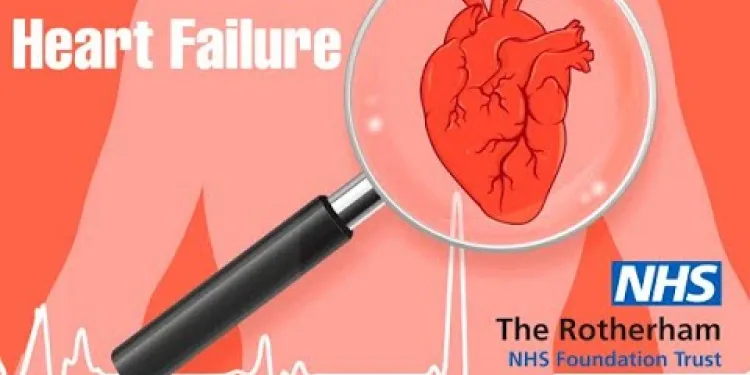
Heart Failure : Heart failure that cannot pump
Relevance: 97%
-

Heart Failure : The normal heart
Relevance: 95%
-
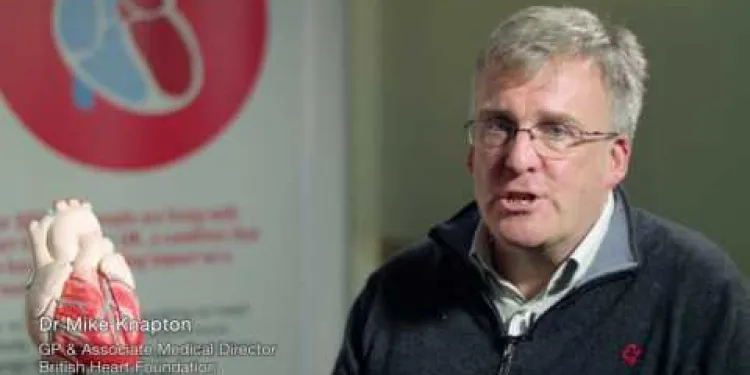
Heart failure introduction
Relevance: 93%
-

Are there different types of heart failure?
Relevance: 89%
-

What causes heart failure?
Relevance: 89%
-
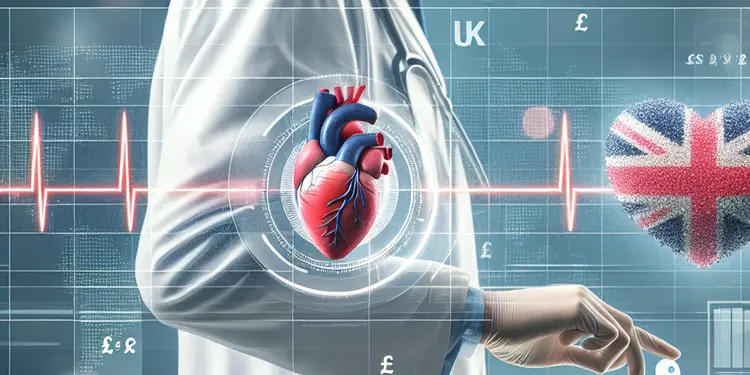
How is heart failure diagnosed?
Relevance: 88%
-
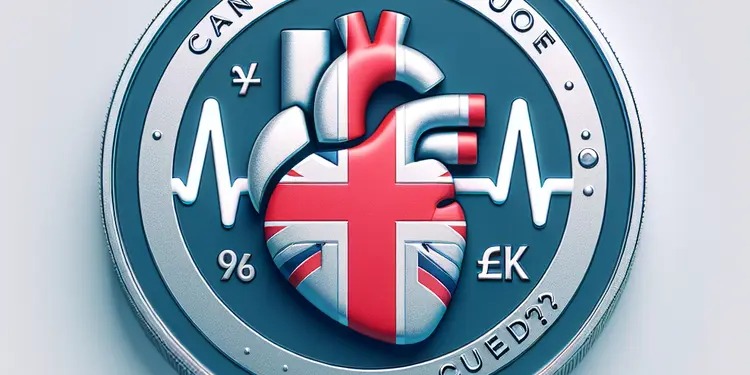
Can heart failure be cured?
Relevance: 88%
-
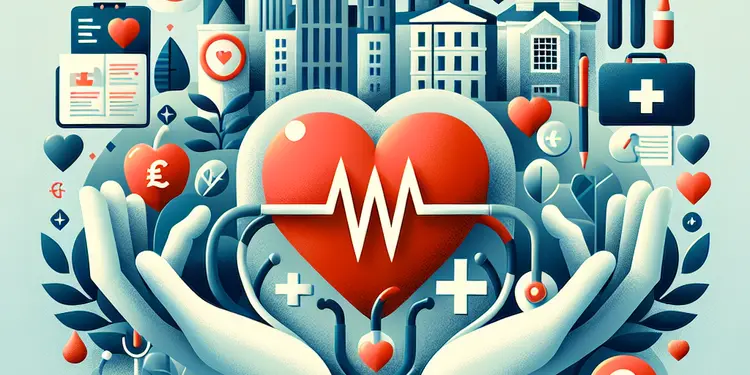
Can heart failure be prevented?
Relevance: 88%
-
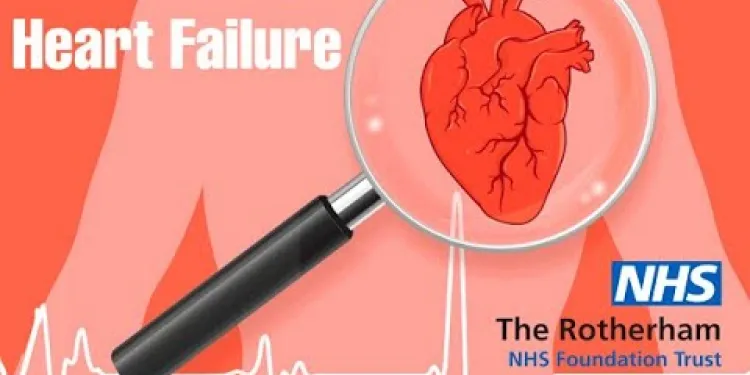
Heart Failure : When the heart becomes stiff?
Relevance: 88%
-
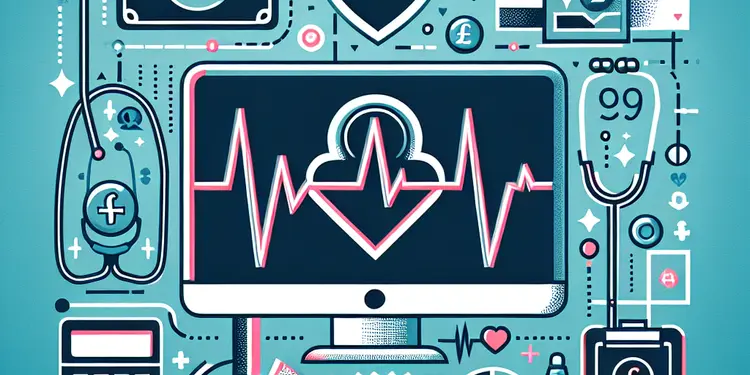
What is the prognosis for someone with heart failure?
Relevance: 84%
-
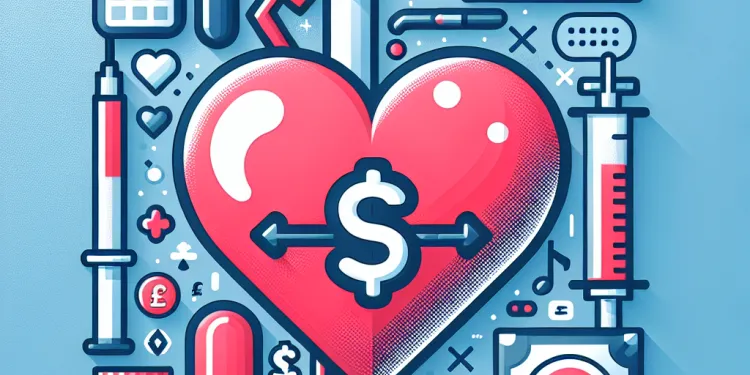
Is Baxdrostat used in treating heart failure?
Relevance: 84%
-
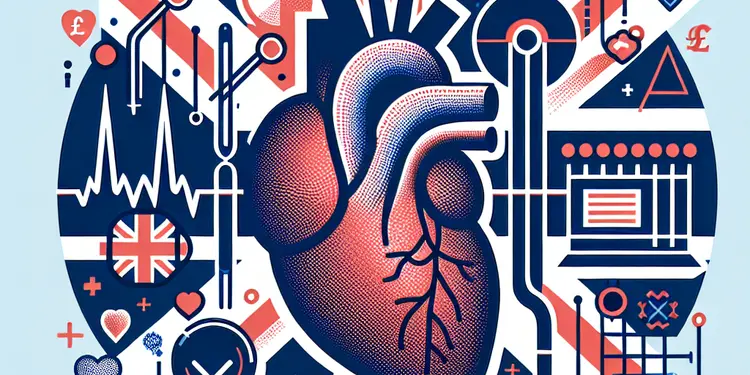
Can heart failure affect other organs?
Relevance: 81%
-

What is the role of diet in managing heart failure?
Relevance: 81%
-
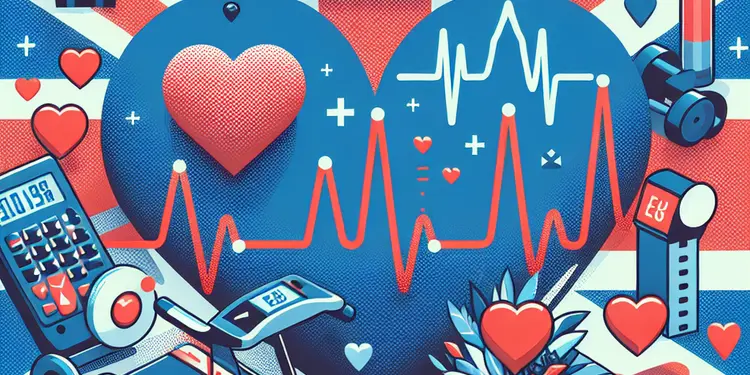
How does exercise impact heart failure?
Relevance: 81%
-
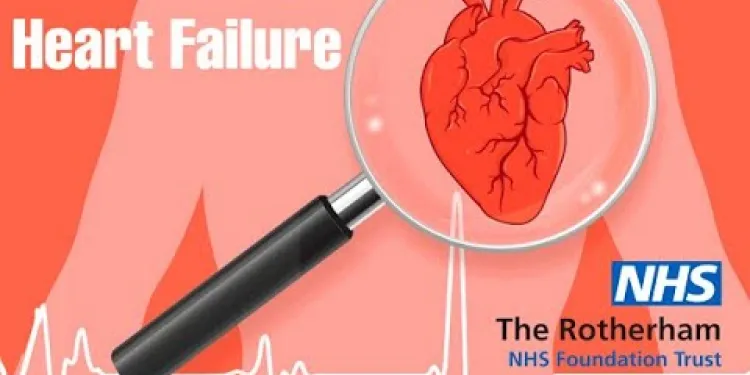
Heart Failure : Treatment and monitoring of fluid retention
Relevance: 80%
-
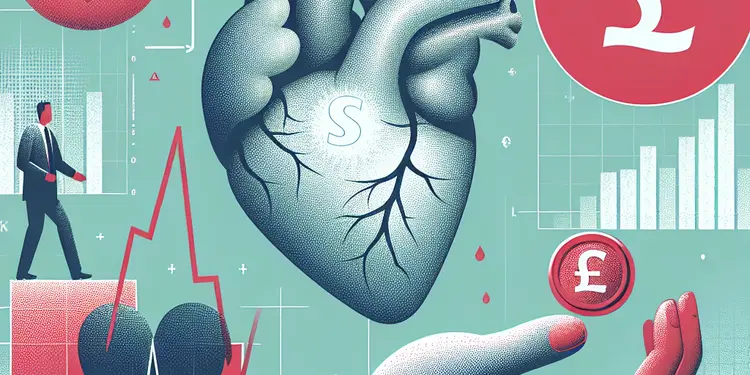
What should I do if I experience symptoms of heart failure?
Relevance: 80%
-

What medications are commonly prescribed for heart failure?
Relevance: 80%
-
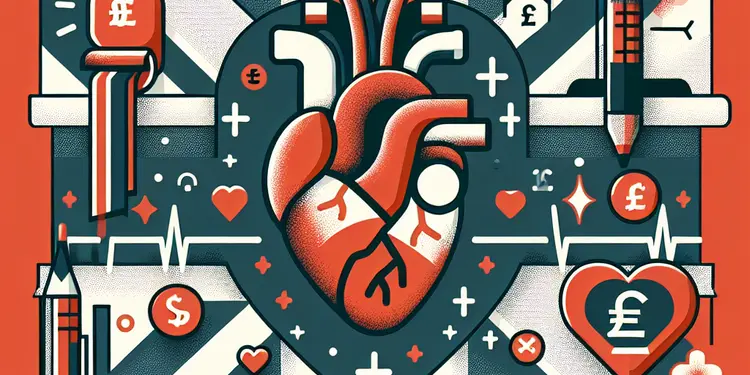
What is heart failure?
Relevance: 70%
-

What are the common symptoms of heart failure?
Relevance: 62%
-

What lifestyle changes can help manage heart failure?
Relevance: 54%
-
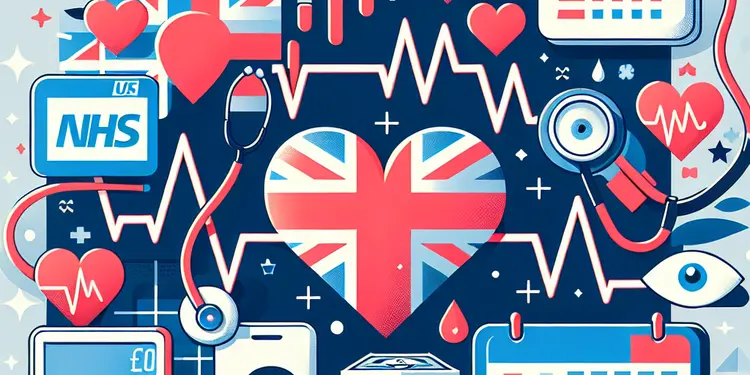
How often should someone with heart failure see their doctor?
Relevance: 54%
-
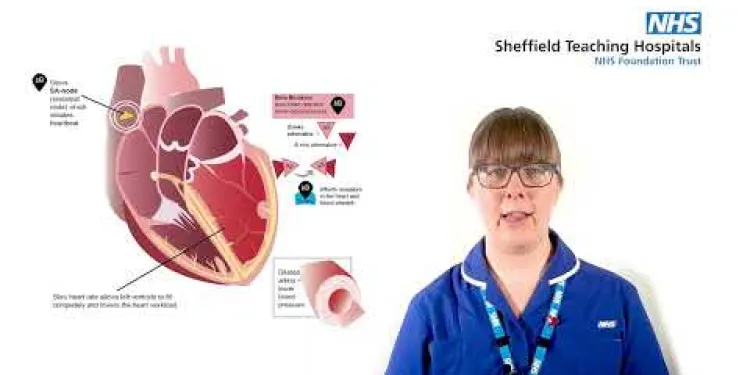
Medicines of the heart
Relevance: 49%
-

Is my abnormal heart rhythm dangerous?
Relevance: 47%
-

How do beta-blockers contribute to heart attack prevention?
Relevance: 45%
-
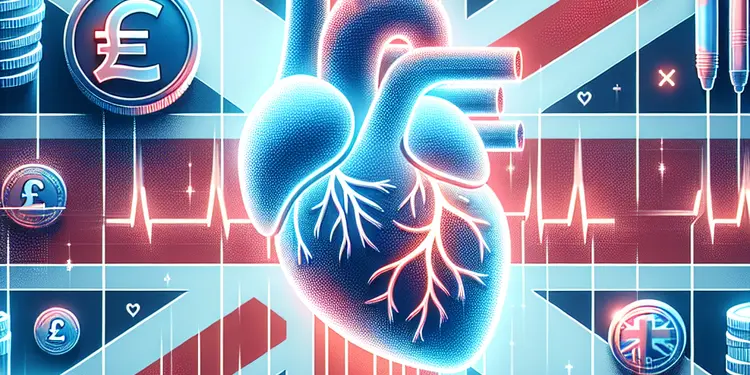
What are the long-term effects of a heart attack?
Relevance: 45%
-

Is my abnormal heart rhythm dangerous?
Relevance: 44%
-

Does coffee consumption have any long-term heart health effects?
Relevance: 43%
-

Heart stents
Relevance: 43%
-
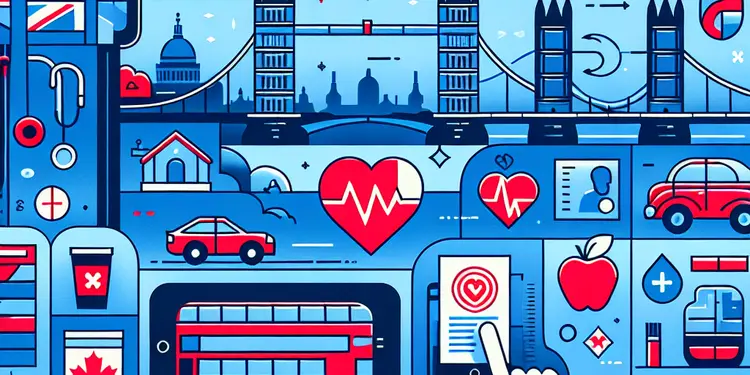
What are the risk factors for a heart attack?
Relevance: 41%
-
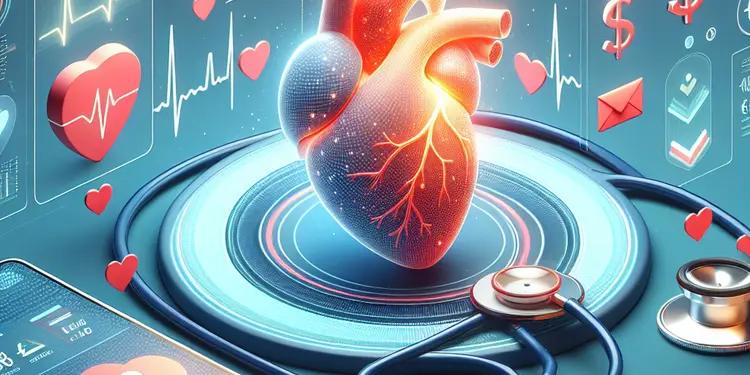
Is it possible to prevent a heart attack?
Relevance: 39%
-
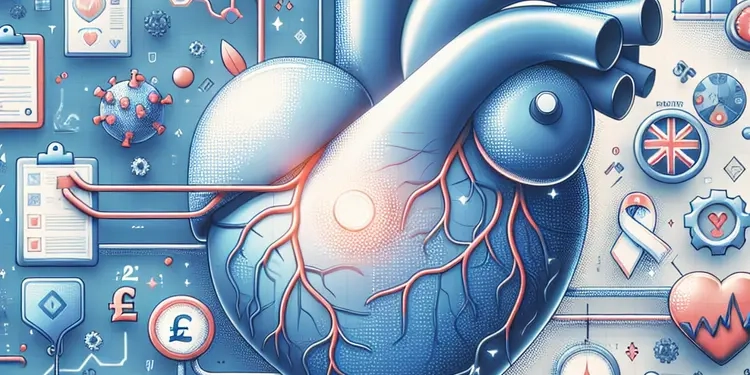
What is heart valve disease?
Relevance: 39%
-
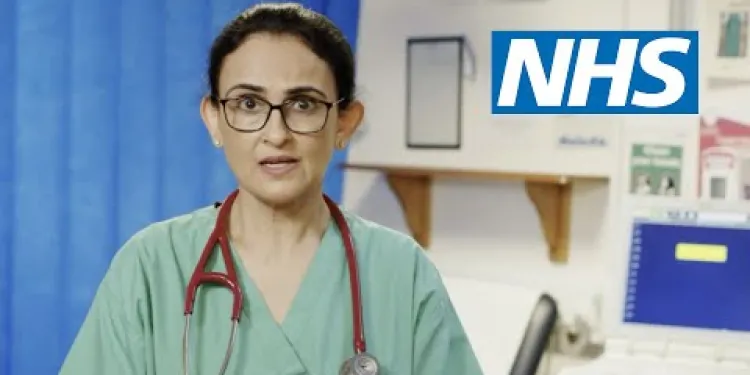
Heart Attack Stories | NHS
Relevance: 39%
-
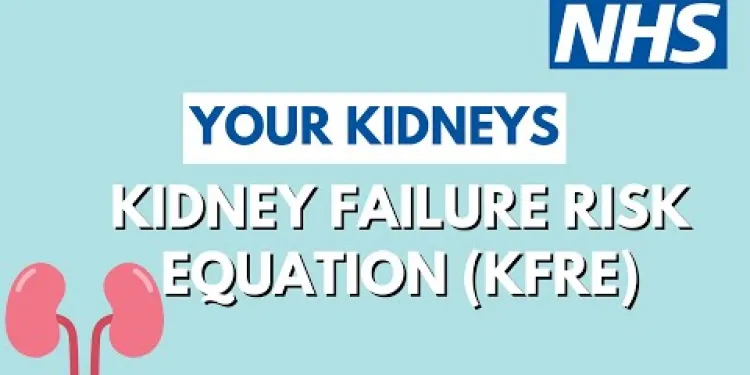
What is my risk of kidney failure with CKD (chronic kidney disease) | UHL NHS Trust
Relevance: 39%
-
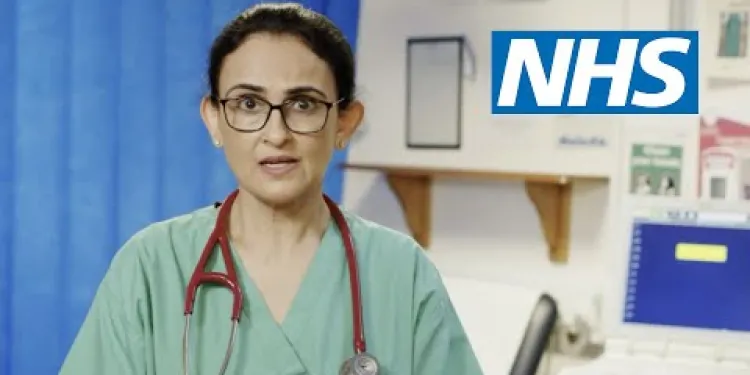
Heart Attack Stories | NHS
Relevance: 39%
-

Is it possible to have a heart attack without chest pain?
Relevance: 37%
-

Are there specific fats that support heart health?
Relevance: 37%
-

Will a heart bypass make me live longer?
Relevance: 37%
-
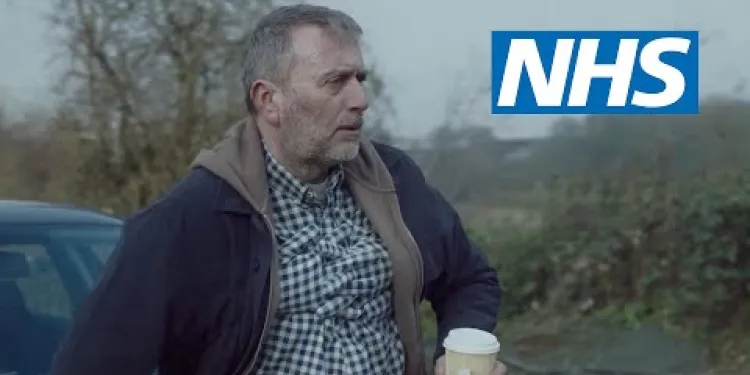
Heart Attack Symptoms - Help Us Help You | NHS
Relevance: 37%
Heart Failure: When the Heart Cannot Pump Adequately
What is Heart Failure?
Heart failure is a serious medical condition where the heart is unable to pump blood efficiently to meet the body’s needs. This condition can lead to symptoms such as shortness of breath, fatigue, and fluid retention. Although it is termed "heart failure," it does not mean that the heart has completely stopped working, but rather that it is not functioning as it should.
Causes of Heart Failure
Several factors can contribute to heart failure, including coronary artery disease, high blood pressure, diabetes, and previous heart attacks. Lifestyle factors such as smoking, obesity, and lack of physical activity can also increase the risk. In some cases, heart failure may result from an underlying condition like a faulty heart valve or congenital heart disease.
Symptoms to Watch Out For
Common symptoms of heart failure include persistent coughing or wheezing, swelling in the legs, ankles, or feet, and rapid weight gain due to fluid buildup. Patients may also experience dizziness, confusion, and a rapid or irregular heartbeat. Recognizing these symptoms early is crucial for timely medical intervention.
Diagnosis and Treatment
Diagnosis of heart failure typically involves a combination of medical history evaluation, physical examination, and several diagnostic tests, such as blood tests, echocardiograms, or MRI scans. Treatment may include lifestyle changes, medications, and, in some cases, surgical procedures like bypass surgery or the implantation of a pacemaker.
Living with Heart Failure
Managing heart failure involves a multidisciplinary approach, including regular follow-ups with healthcare providers, adherence to prescribed medications, and lifestyle modifications. Engaging in regular physical activity, maintaining a healthy diet, and avoiding substances like tobacco and excessive alcohol can significantly improve quality of life.
Support and Resources
In the United Kingdom, organizations such as the British Heart Foundation provide comprehensive resources, support groups, and educational materials for individuals living with heart failure. Accessing these resources can help patients and their families navigate the challenges associated with this condition.
Heart Failure: When the Heart Cannot Pump Adequately
What is Heart Failure?
Heart failure is a health problem. It means the heart cannot pump blood well. The heart does not stop, but it is weaker. This can make you feel very tired, have trouble breathing, and make your body hold extra water.
Causes of Heart Failure
Many things can make the heart weak. These include having blocked heart arteries, high blood pressure, or diabetes. Being very overweight, smoking, and not exercising can also make it worse. Sometimes, people are born with heart problems.
Symptoms to Watch Out For
Signs of heart failure can be a cough that does not go away, swollen legs or feet, and gaining weight quickly because of extra water. You might also feel dizzy or confused and have a fast or irregular heartbeat. If you see these signs, it's important to get help from a doctor.
Diagnosis and Treatment
Doctors check for heart failure by asking about your health and doing tests. These tests can be blood tests, heart pictures, or scans. Treatment can include changing daily habits, taking medicine, or sometimes surgery to fix the heart.
Living with Heart Failure
To live with heart failure, see your doctor often and take your medicine. Eat healthy foods, exercise regularly, and do not smoke or drink too much alcohol. This can help you feel better and live well.
Support and Resources
In the UK, the British Heart Foundation can help. They have information, support groups, and other resources for people with heart failure. Ask your family and friends to help you get the support you need.
Frequently Asked Questions
What is heart failure?
Heart failure is a condition in which the heart is unable to pump blood effectively to meet the body's needs. It can affect one or both sides of the heart.
What are the common symptoms of heart failure?
Common symptoms include shortness of breath, fatigue, swollen legs, rapid heartbeat, and persistent coughing or wheezing.
What causes heart failure?
Heart failure can be caused by various conditions, including coronary artery disease, high blood pressure, diabetes, and cardiomyopathy.
How is heart failure diagnosed?
Heart failure is diagnosed through physical exams, patient history, and tests such as echocardiograms, ECGs, blood tests, and chest X-rays.
Is heart failure reversible?
While heart failure is generally a chronic condition, its progression can often be slowed with treatment, lifestyle changes, and management of underlying conditions.
What are the treatment options for heart failure?
Treatment may include medications, lifestyle changes, medical devices, and, in some cases, surgery or heart transplants.
What lifestyle changes can help manage heart failure?
Helpful changes include eating a balanced diet, reducing salt intake, engaging in regular physical activity, quitting smoking, limiting alcohol, and maintaining a healthy weight.
Can exercise help with heart failure?
Yes, regular physical activity can help improve heart function and overall health, but it should be done under the guidance of a healthcare professional.
What medications are commonly prescribed for heart failure?
Common medications include ACE inhibitors, beta-blockers, diuretics, and aldosterone antagonists.
How does a low-sodium diet help with heart failure?
Reducing sodium intake helps prevent fluid retention, which can alleviate symptoms like swelling and shortness of breath.
What are the risks of untreated heart failure?
Untreated heart failure can lead to severe complications such as kidney damage, arrhythmias, heart attack, and even death.
Can heart failure affect mental health?
Yes, heart failure can lead to anxiety, depression, and other mental health issues, and it's essential to address these as part of comprehensive care.
What is the role of a pacemaker in managing heart failure?
A pacemaker can help manage heart failure by regulating heart rhythm and improving the heart's ability to pump blood.
How does high blood pressure contribute to heart failure?
High blood pressure forces the heart to work harder to pump blood, which can weaken the heart over time and lead to heart failure.
Where can I find support for living with heart failure in the UK?
Support can be found through healthcare providers, local support groups, charities like the British Heart Foundation, and online resources.
What is heart failure?
Heart failure is when the heart is not working properly. The heart cannot pump blood as well as it should.
Here are some easy tips to help:
- Use pictures to understand better.
- Ask someone to read with you.
- Take breaks and read slowly.
Heart failure is when the heart cannot pump blood well enough for the body. It can happen to one side of the heart or both sides.
What are the common signs of heart failure?
Heart failure means the heart is not working as it should.
Here are some signs to look out for:
- Feeling very tired.
- Having trouble breathing, like when you walk or lie down.
- Legs, feet, or stomach swelling up.
- Gaining weight quickly.
- Coughing a lot, especially at night.
If you have these signs, it’s important to talk to a doctor.
Helpful Tips:
- Ask someone you trust for help if you are worried.
- Keep a list of your symptoms to show your doctor.
- Use pictures or drawings to help understand the signs.
Common signs to look out for:
- Feeling out of breath
- Feeling very tired
- Legs getting big and puffy
- Heart beating really fast
- Coughing or making a wheezing sound that won't go away
What makes the heart stop working well?
The heart can stop working well for a few reasons:
- If the heart gets weak or sick.
- If the heart has to work too hard for a long time.
- If something blocks the blood from moving around.
Here are some things that can help:
- Talk to a doctor if you feel unwell.
- Eat healthy food and exercise.
- Ask for help if you need it.
Your heart can have trouble working for different reasons. Some reasons are blocked blood vessels, high blood pressure, diabetes, or problems with your heart muscle.
It might help to:
- Use pictures to understand better.
- Read with a helper or use audiobooks.
- Take breaks if you feel tired.
How do doctors find out if someone has heart failure?
Doctors find out if you have heart problems by doing check-ups, asking about your health history, and giving you tests like heart scans, checking your heart's electric signals, blood tests, and chest X-rays.
Can you get better from heart failure?
Heart failure means the heart is not working as well as it should. It can still pump blood, but not enough. Sometimes, the heart can get stronger with the right help.
Here are some ways that might help:
- Take the medicine the doctor gives you. It helps the heart work better.
- Eat healthy foods. This gives your body good energy.
- Exercise a little every day. It makes the heart stronger.
- Tell your doctor how you feel. They can help you a lot.
Sometimes, the heart cannot get all better, but these things can help you feel stronger and happier. Ask someone you trust if you need more help.
Heart failure means the heart isn't working well. It usually lasts a long time. But, it can get better slowly with help.
Doctors can help with medicine and other treatments. Changing how you live, like eating healthy and exercising, can help too. Also, taking care of other health problems is important.
What can help if someone's heart is not working well?
Here are some things that might help:
- Medicine: A doctor can give medicine to help the heart.
- Eat Healthy: Eating fruits, veggies, and good food can help the heart.
- Exercise: Moving around and playing can make the heart stronger. Ask a doctor what is safe to do.
- Talking to a Doctor: It's important to see the doctor often to check the heart.
If you find reading hard, ask someone to read with you. Use a ruler or finger to follow the words. Take your time and ask questions if you don't understand.
Treatment can include taking medicine, changing the way you live, using special devices, and sometimes having an operation or getting a new heart.
How can I take care of my heart?
If your heart is weak, there are ways to help it:
Eat Healthy: Try to eat more fruits, vegetables, and whole grains. They are good for your heart.
Exercise: Do a little bit of exercise every day, like walking or playing. It helps your heart get stronger.
Rest: Make sure you sleep well at night. Rest helps your body and heart heal.
Take Medicines: If the doctor gives you pills for your heart, take them every day.
Support: Ask a grown-up or friend to help you remember what to do.
These steps can make your heart feel better!
Here are some good things you can do to stay healthy:
- Eat different kinds of food to get all the things your body needs.
- Don't eat too much salt. Salt can be bad for you.
- Move your body every day. Play, walk, or dance to stay strong.
- If you smoke, try to quit. Smoking is not good for you.
- Drink less alcohol. It's important to be careful with it.
- Try to stay at a healthy weight. It helps your body work well.
If you need help, ask a friend or family member. You can also use apps or websites that help you stay healthy.
Can exercise help with a weak heart?
Moving your body, like walking or playing, can help make your heart stronger. If you have a heart that is not very strong, exercise can be good for you. But always ask a doctor first to know what's safe.
If it's okay to exercise, try simple things like walking, stretching, or riding a bike. Doing these activities can help your heart and make you feel better.
You can use tools like videos or apps to learn how to exercise safely. You can also join classes with other people or ask a friend to exercise with you. This makes it fun and easier to do.
Yes, doing exercise often can make your heart work better and make you healthier. But you should ask a doctor or nurse how to do it safely.
What medicines do doctors give for heart problems?
Some common medicines are ACE inhibitors, beta-blockers, water pills, and aldosterone antagonists.
If you find this hard to understand, you can ask a friend or family member to help explain it. You can also use pictures or videos to help learn about these medicines.
How does eating less salt help your heart?
Eating less salt can make your heart stronger.
When you eat a lot of salt, it makes your body hold onto water.
This makes your heart work harder.
If you have heart problems, eating less salt can help.
Try using less salt when you cook.
Look for foods that say "low salt" or "no salt" on the package.
Ask someone to help you read food labels.
Eating less salt can help your body hold less water. This can stop problems like swelling and trouble breathing.
What can happen if heart failure is not treated?
Heart failure is when the heart does not pump blood well. If you don't get help for heart failure, it can cause problems. Here is what might happen:
- Feeling very tired: Your body might not get enough energy.
- Swelling: Parts of your body, like your feet, might get puffy.
- Hard to breathe: You might feel like you can't get enough air.
- Heart problems: Your heart could get weaker.
If you think you have heart failure, talk to a doctor. Here are some things that might help:
- Take medicine that the doctor gives you. It can help your heart.
- Eat healthy food and try to move around every day.
- Rest when you feel tired.
It is important to get help so you can feel better.
If heart failure is not treated, it can cause big problems. Your kidneys could get hurt. Your heart might beat too fast or too slow. You could have a heart attack, and it could be very serious, even leading to death.
Using tools like pictures and charts can help you understand better. Also, asking someone to read it with you might be helpful.
Can heart failure affect your feelings?
Sometimes, when your heart is not healthy, it can make you feel sad or worried too. This is because your body and mind are connected.
If you are feeling upset or anxious, it can help to talk to someone like a doctor or a friend. Drawing pictures or writing things down might also make you feel better.
Remember, taking care of your heart and talking about your feelings are both important.
Yes, when your heart is not working well, it can make you feel worried or sad. This is normal. It is important to talk about these feelings with your doctor because taking care of your mind is as important as taking care of your body.
How does a pacemaker help when the heart is not working well?
A pacemaker helps the heart work better. It keeps the heart beating in a regular way. This helps the heart pump blood well.
How does high blood pressure affect the heart?
High blood pressure makes your heart work harder.
This can tire your heart over time.
If your heart gets too tired, it might not work well. This is called heart failure.
Tools that can help you understand:
- Pictures or drawings of the heart and blood pressure.
- A video showing how the heart works.
High blood pressure makes the heart work too hard to push blood. This can make the heart weak and cause heart problems later.
Where can I get help for living with heart problems in the UK?
If you have heart problems, there are people who can help you.
Here are some places where you can find help:
- Talk to your doctor. They can give you advice and support.
- Visit a heart charity like the British Heart Foundation. They have information and support groups.
- Look for local support groups in your area. You can meet other people with heart problems.
- Use online resources. There are websites with tips and advice.
Remember, you are not alone. There is help for you.
You can get help from doctors and nurses. You can also find help in local groups, charities like the British Heart Foundation, and on the internet.
Useful Links
This website offers general information and is not a substitute for professional advice.
Always seek guidance from qualified professionals.
If you have any medical concerns or need urgent help, contact a healthcare professional or emergency services immediately.
- Ergsy carfully checks the information in the videos we provide here.
- Videos shown by Youtube after a video has completed, have NOT been reviewed by ERGSY.
- To view, click the arrow in centre of video.
- Most of the videos you find here will have subtitles and/or closed captions available.
- You may need to turn these on, and choose your preferred language.
- Go to the video you'd like to watch.
- If closed captions (CC) are available, settings will be visible on the bottom right of the video player.
- To turn on Captions, click settings .
- To turn off Captions, click settings again.
More Items From Ergsy search
-

Heart Failure : Symptoms of heart failure
Relevance: 100%
-

Heart Failure : What is heart failure?
Relevance: 100%
-

Heart Failure : Heart failure that cannot pump
Relevance: 97%
-

Heart Failure : The normal heart
Relevance: 95%
-

Heart failure introduction
Relevance: 93%
-

Are there different types of heart failure?
Relevance: 89%
-

What causes heart failure?
Relevance: 89%
-

How is heart failure diagnosed?
Relevance: 88%
-

Can heart failure be cured?
Relevance: 88%
-

Can heart failure be prevented?
Relevance: 88%
-

Heart Failure : When the heart becomes stiff?
Relevance: 88%
-

What is the prognosis for someone with heart failure?
Relevance: 84%
-

Is Baxdrostat used in treating heart failure?
Relevance: 84%
-

Can heart failure affect other organs?
Relevance: 81%
-

What is the role of diet in managing heart failure?
Relevance: 81%
-

How does exercise impact heart failure?
Relevance: 81%
-

Heart Failure : Treatment and monitoring of fluid retention
Relevance: 80%
-

What should I do if I experience symptoms of heart failure?
Relevance: 80%
-

What medications are commonly prescribed for heart failure?
Relevance: 80%
-

What is heart failure?
Relevance: 70%
-

What are the common symptoms of heart failure?
Relevance: 62%
-

What lifestyle changes can help manage heart failure?
Relevance: 54%
-

How often should someone with heart failure see their doctor?
Relevance: 54%
-

Medicines of the heart
Relevance: 49%
-

Is my abnormal heart rhythm dangerous?
Relevance: 47%
-

How do beta-blockers contribute to heart attack prevention?
Relevance: 45%
-

What are the long-term effects of a heart attack?
Relevance: 45%
-

Is my abnormal heart rhythm dangerous?
Relevance: 44%
-

Does coffee consumption have any long-term heart health effects?
Relevance: 43%
-

Heart stents
Relevance: 43%
-

What are the risk factors for a heart attack?
Relevance: 41%
-

Is it possible to prevent a heart attack?
Relevance: 39%
-

What is heart valve disease?
Relevance: 39%
-

Heart Attack Stories | NHS
Relevance: 39%
-

What is my risk of kidney failure with CKD (chronic kidney disease) | UHL NHS Trust
Relevance: 39%
-

Heart Attack Stories | NHS
Relevance: 39%
-

Is it possible to have a heart attack without chest pain?
Relevance: 37%
-

Are there specific fats that support heart health?
Relevance: 37%
-

Will a heart bypass make me live longer?
Relevance: 37%
-

Heart Attack Symptoms - Help Us Help You | NHS
Relevance: 37%


